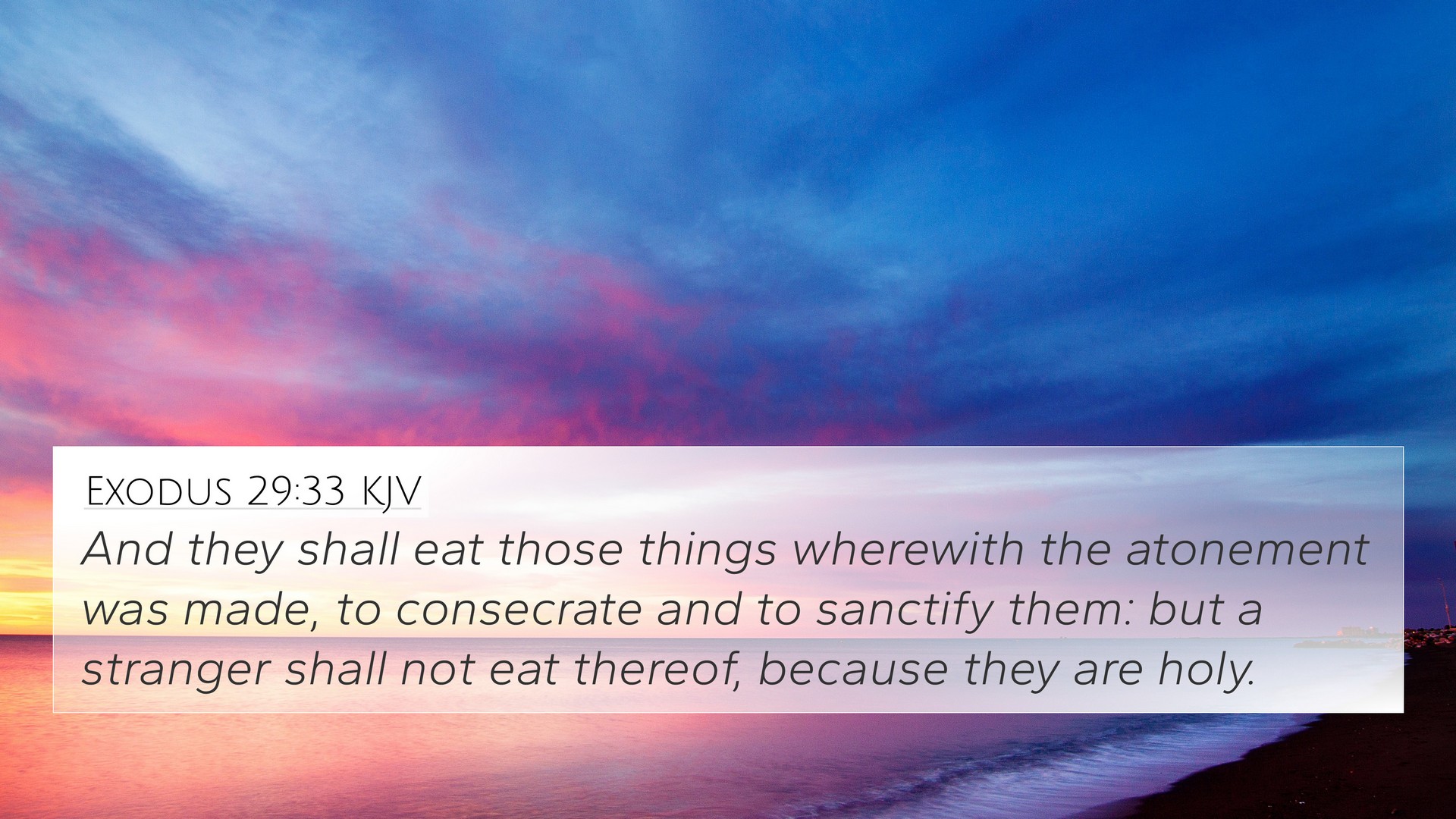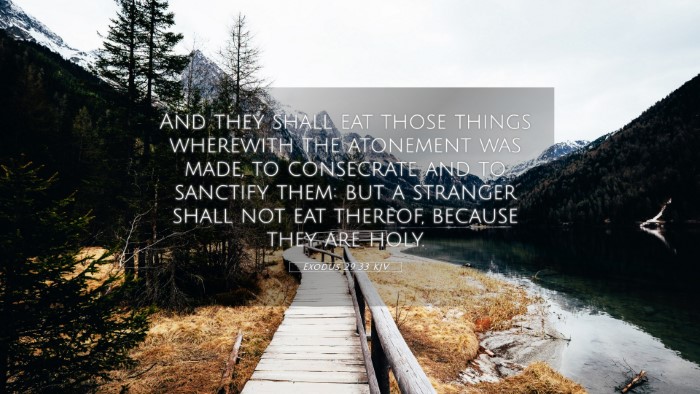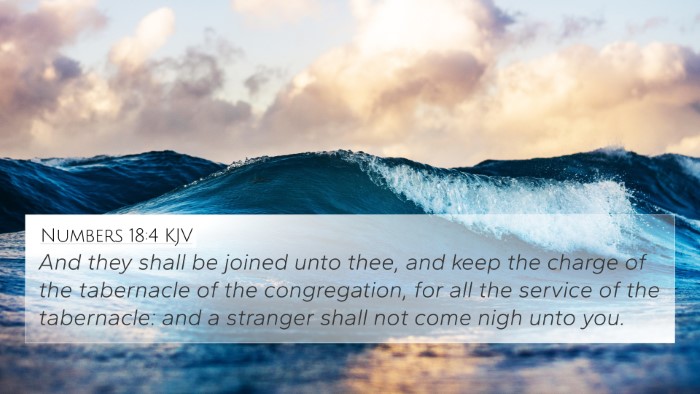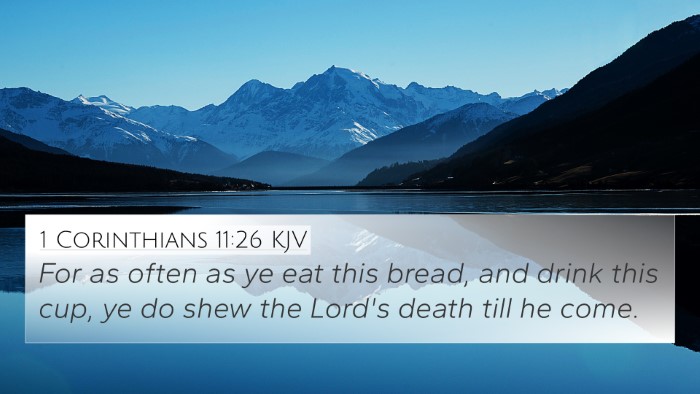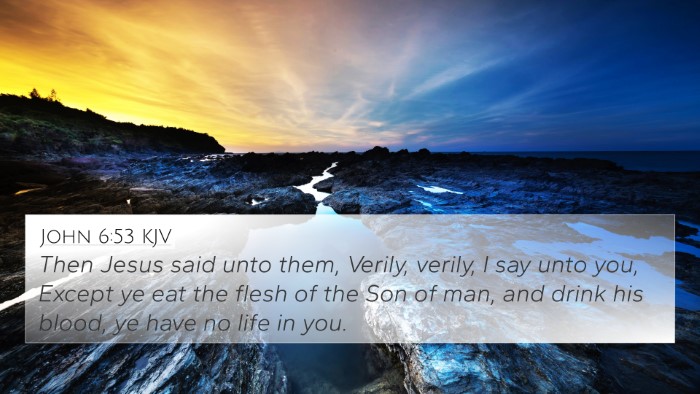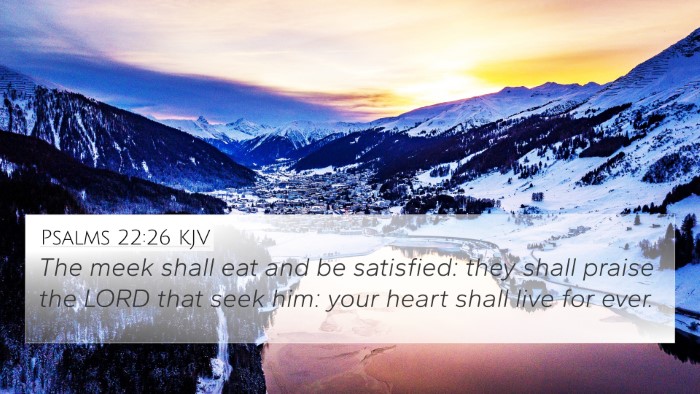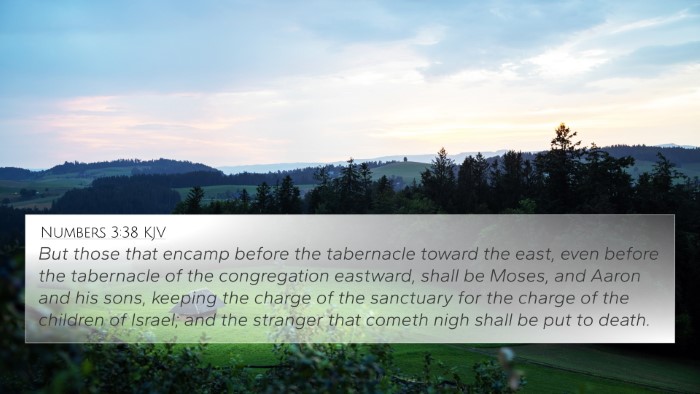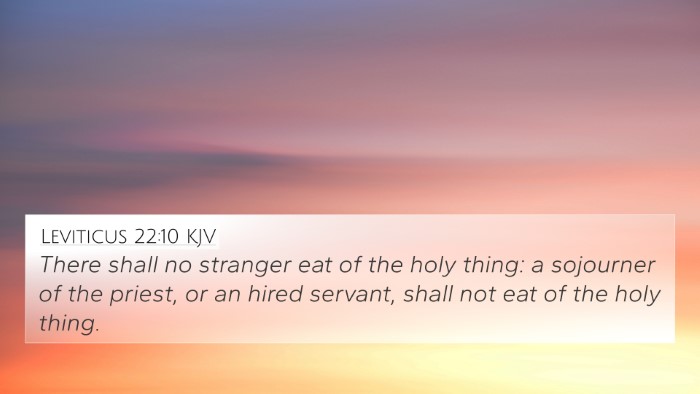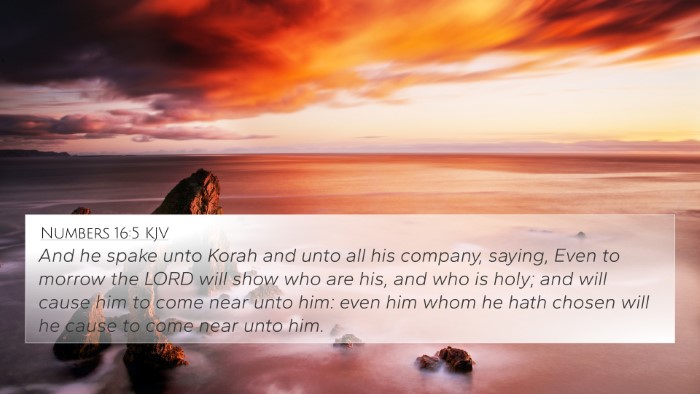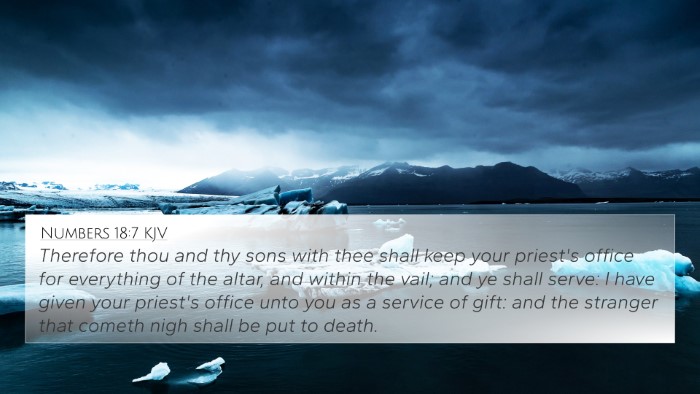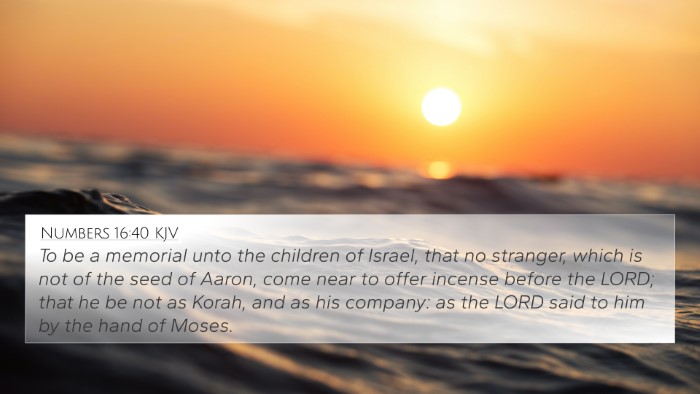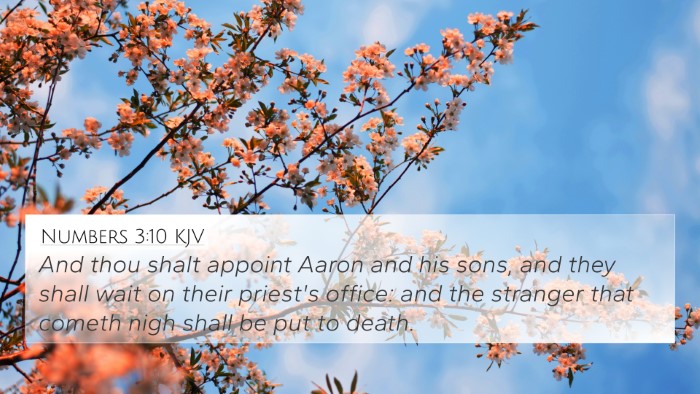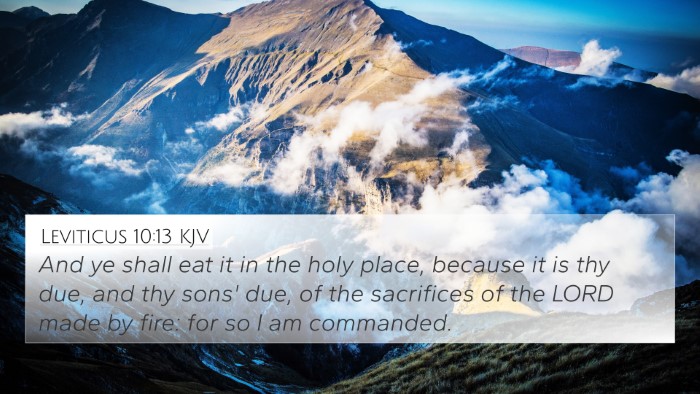Understanding Exodus 29:33
The verse Exodus 29:33 states:
"And they shall eat those things wherewith the atonement was made, to consecrate and to sanctify them: but a stranger shall not eat thereof, because they are holy."
This verse provides significant insight into the process of consecration and sanctification, emphasizing the holiness of the offerings dedicated to God, and the need for those who partake to be set apart for His service.
Summary of Meaning
In Exodus 29:33, God outlines the solemnity and sacredness associated with the consecrated offerings made for Aaron and his sons. Matthew Henry, Albert Barnes, and Adam Clarke offer complementary interpretations that enrich our understanding of this text.
Consecration and Holiness
Matthew Henry emphasizes that the offerings symbolize the sanctification required to approach God. The priests, as mediators, must be consecrated through these rituals, indicating that holiness is essential for anyone serving in a sacred capacity.
Albert Barnes notes that the reference to "a stranger" signifies that only those designated by God—namely the priests—can partake in these offerings. This establishes a clear boundary around the sacred, underscoring the seriousness of God's instructions.
Adam Clarke elaborates that this delineation reflects God’s intent to maintain purity and sanctity in worship. The prohibition against outsiders consuming the offerings illustrates a broader theme in Scripture: true worship and communion with God require a state of holiness.
Cross-References for Exodus 29:33
- Exodus 30:10 - "And Aaron shall make an atonement upon the horns of it once in a year with the blood of the sin offering of atonements: once in the year shall he make atonement upon it throughout your generations: it is most holy unto the LORD."
- Leviticus 10:10 - "And that ye may put difference between holy and unholy, and between unclean and clean."
- Leviticus 6:18 - "All the males among the children of Aaron shall eat of it. It shall be a statute forever in your generations concerning the offerings of the LORD made by fire: every one that toucheth them shall be holy."
- Numbers 18:10 - "In the most holy place shalt thou eat it; every male shall eat it: it shall be holy unto thee."
- 1 Peter 2:9 - "But ye are a chosen generation, a royal priesthood, an holy nation, a peculiar people; that ye should shew forth the praises of him who hath called you out of darkness into his marvelous light."
- Hebrews 2:11 - "For both he that sanctifieth and they who are sanctified are all of one: for which cause he is not ashamed to call them brethren."
- Hebrews 13:10 - "We have an altar, whereof they have no right to eat which serve the tabernacle."
- Romans 12:1 - "I beseech you therefore, brethren, by the mercies of God, that ye present your bodies a living sacrifice, holy, acceptable unto God, which is your reasonable service."
- Revelation 1:6 - "And hath made us kings and priests unto God and his Father; to him be glory and dominion for ever and ever. Amen."
- Isaiah 52:11 - "Depart ye, depart ye, go ye out from thence, touch no unclean thing; go ye out of the midst of her; be ye clean, that bear the vessels of the LORD."
Thematic Connections Between Bible Verses
This verse and its cross-references illustrate various themes of holiness, consecration, and exclusive access to the sacred things of God:
- Holiness Required: Across both the Old and New Testaments, the sanctity of offerings and the holiness required to approach God are consistent themes.
- Role of the Priesthood: The unique role of priests as intermediaries is highlighted in both the sacrificial system and in the reinterpretation of this role through Christ.
- Separation of the Holy: The call to be separate from the unclean and the implication of preparing oneself for worship are recurrent messages.
Practical Application
Understanding Exodus 29:33 can deeply influence our approach to worship today. Here are some thoughts to consider:
- Self-Examination: Just as the priests were required to be holy, believers today are encouraged to assess their hearts and lives in light of God's holiness.
- Respecting God's Design: Acknowledging the structure God has set forth in Scripture, including the role of spiritual leaders, is vital for spiritual health.
- Understanding Our Access: The New Testament teaches that through Christ, believers have direct access to God, but this privilege also carries the responsibility of living in a manner that reflects His holiness.
Final Thoughts
Exodus 29:33 serves as a powerful reminder of the sacredness of God’s instructions concerning worship and the importance of holiness in the life of a believer. Through careful study and cross-referencing Biblical texts, we can gain a richer understanding of how God's call for holiness permeates the entirety of Scripture.
As you seek to explore the meanings behind various Bible verses, consider utilizing tools for Bible cross-referencing and study methods that connect these ancient texts with applications for today.
